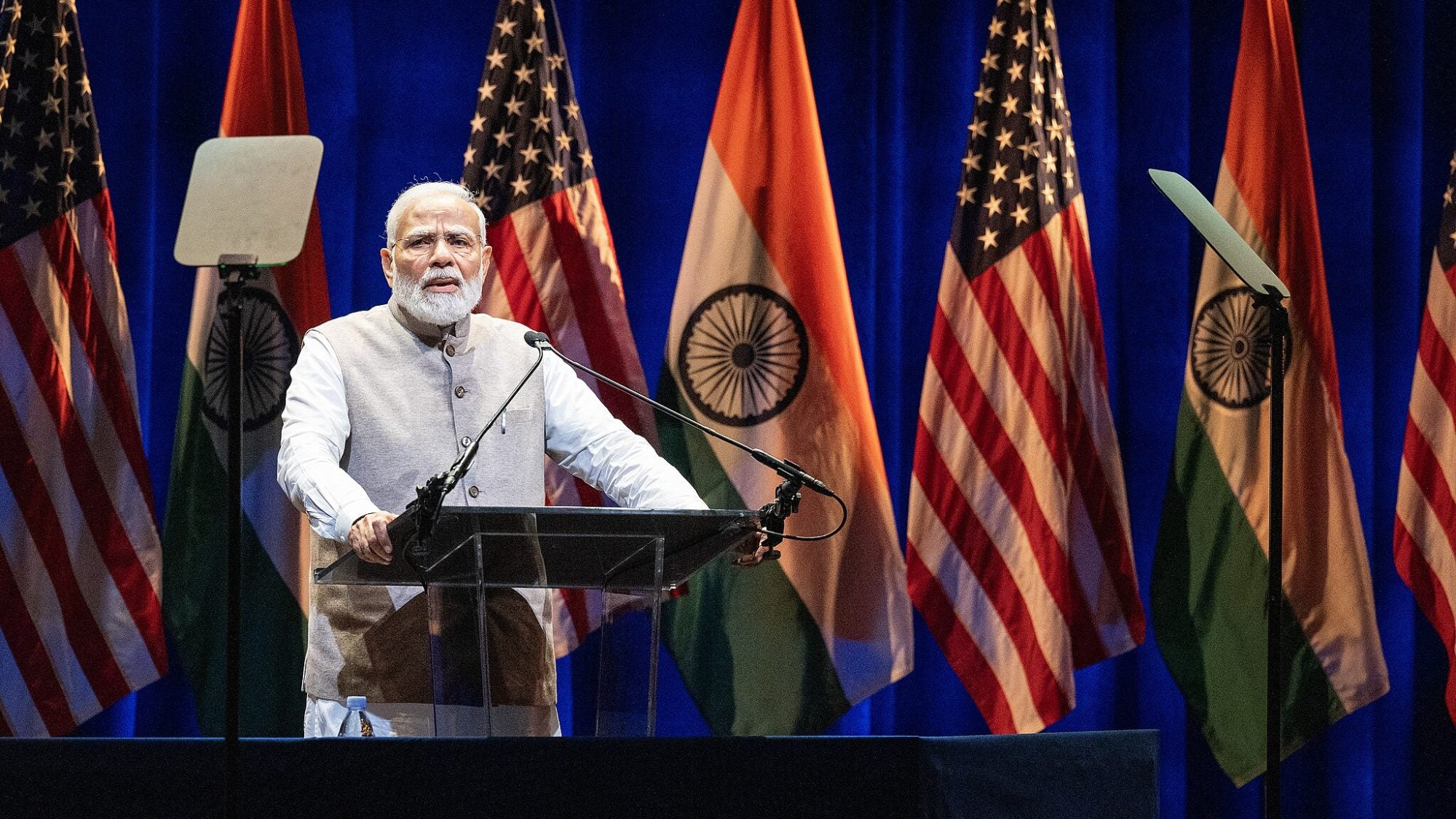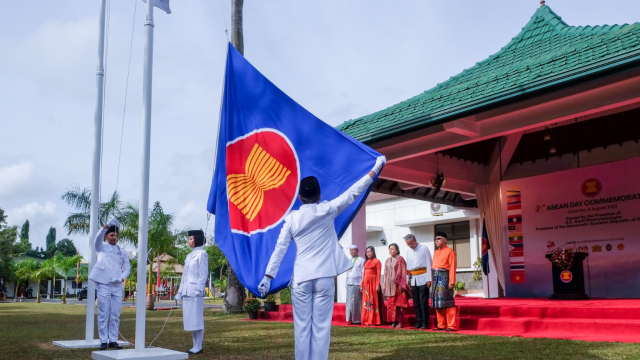
Title: The Fallout of India’s Extrajudicial Killings
India’s undermining of democratic principles through its extrajudicial policy of targeting pro-Khalistan leaders abroad carries negative implications for India-US relations. If India persists with such a policy, maintaining a strategic defense and economic partnership with New Delhi will become challenging for the United States, as resistance from the US Congress, media, and civil society intensifies. It is in the interest of the United States to tie its defense and economic cooperation with India to the adherence of democratic norms.
Introduction
In November 2023, the United States revealed that it had successfully thwarted an alleged Indian plot to assassinate a Sikh separatist leader in New York. The US Department of Justice indicted an Indian national, accusing him of operating on behalf of the Indian government to orchestrate the planned assassination of the Sikh separatist leader. This revelation substantiates Canadian Prime Minister Justin Trudeau’s statement in September 2023, wherein he disclosed “credible evidence” of an Indian link in the killing of a pro-Khalistan leader on Canadian soil.
The alleged extrajudicial killing and the thwarted plot raise questions about India’s dependability as a reliable strategic partner for the United States. The Modi government’s growing authoritarianism, along with its assertive foreign policy, prompts uncertainties about India’s democratic values. This potential trajectory of authoritarianism conflicts with the international liberal order built by the United States and its allies. Hence, it is in the interest of the United States to ensure accountability for India’s growing authoritarian tendencies by tying economic and defense cooperation to the preservation of democratic values.
Thwarted Indian Plot
The United States prosecutors officially charged an Indian national named Nikhil Gupta for planning the May assassination plot of Gurpatwant Singh Pannun, a Sikh separatist leader, on American soil. Gupta was recruited by an Indian government official, who was identified as a “senior field officer” involved in intelligence, for the assassination plot. While the indictment does not disclose the government employee’s name, it does shed light on the plot. The accused government employee allegedly recruited Gupta to engage a hitman for the execution. Fortunately for the US authorities, the hired hitman turned out to be an undercover Drug Enforcement Administration (DEA) agent. Shockingly, the indictment reveals that the Indian official and Gupta had devised an extensive scheme to eliminate “many targets” across Canada and the United States. Gupta added that Canadian pro-Khalistan leader, Hardeep Singh Nijjar, was also one of the targets, implicating the Indian government in his assassination.
The alleged connection between the Indian government and the attempted assassination was a profound shock to the Biden administration. Such an unexpected revelation challenged the assumption that a friendly democratic country, with whom the United States is actively fostering a strategic partnership, could be implicated in the targeted killing of a US citizen on American soil. This act was considered an unacceptable violation of sovereignty.
CIA Director William J. Burns visited New Delhi in August, followed by Director of National Intelligence Avril Haines in October and FBI Chief Christopher Wray in December. During these visits, each official pressed the Indian government for assurances on the prevention of similar acts. They also urged for a comprehensive investigation, decisive action, and accountability for the assassination attempt. Although we haven’t seen any further occurrences, the aggressive policy supporting these acts undermines the narrative of mutual democratic values between India and the United States. It further complicates the Biden administration’s attempts to forge an Indo-Pacific coalition rooted in common values, principles, and morals in the competition against China’s authoritarian model.
Mutual Strategic Importance
India’s ongoing border disputes with China and the threat to its sovereignty from Beijing’s territorial assertiveness make cooperation with the United States strategically paramount. India sees this alliance as crucial for safeguarding its interests due to its power asymmetry with China. Conversely, the United States recognizes the pivotal role that India plays in its Indo-Pacific strategy, counterbalancing China’s increasingly assertive geopolitical influence.
During Prime Minister Modi’s state visit to Washington, D.C., in June 2023, the Biden administration signed an agreement for the joint production of the GE F-414 jet engines. Currently, only four countries — the United States, the United Kingdom, Russia, and France — possess the capability to manufacture jet engines. China has yet to acquire this advanced technology. By jointly producing the GE F-414 jet engines, India and the United States aim to strengthen their cooperation and counter Chinese advancement in the realm of defense technology.
The Modi government has seemingly operated under the assumption that, owing to India’s strategic importance, the United States and its allies will overlook New Delhi’s belligerent policies. This perception may have emboldened the Indian government to take more assertive steps, including plotting the assassinations of pro-Khalistan leaders in Canada and the United States. However, the response from the United States and its allies has been unequivocal in deeming such actions unacceptable.
Two months ago, the US Congress blocked a three-billion-dollar drone sale to India, contingent upon New Delhi conducting a “meaningful” investigation into the assassination plot. On February 3, 2024, Congress approved the deal after receiving assurances from the Biden administration regarding a thorough investigation into the incident. This illustrates that despite shared strategic interests, sustaining defense and economic cooperation with India could prove challenging for the executive power in the United States, given the pressures from Congress, civil society, and the media.
During Modi’s state visit in June last year, seventy-five Democratic senators and members of the House of Representatives signed a letter urging Biden to address human rights issues related to religious intolerance and press freedom in India. A few members also boycotted Modi’s address to Congress. If the Modi government persists on this authoritarian trajectory, it has the potential to significantly strain India-US relations. Maintaining a strategic partnership becomes challenging in the absence of shared values, and continued belligerence could jeopardize the foundation of the alliance.
US Interest in a Democratic India
Given India’s position as the world’s most populous nation, the fifth-largest economy, and the second-largest military power, any departure from democratic values has the potential to erode the global order. In a rapidly fragmenting world marked by geopolitical instability, ranging from the Russian invasion of Ukraine to President Xi’s agenda to annex Taiwan, Washington requires New Delhi firmly within its embrace to uphold the global order. India’s status as the world’s largest democracy, exemplifying principles such as secularism, diversification, multiculturalism, and individual rights, is of utmost importance to the United States. It is in the interest of the United States to ensure that a democratic India remains steadfast in upholding its liberal values.
As previously established, India stands as a cornerstone of the United States’ Indo-Pacific strategy. The United States lauds the Quad group, formally known as the Quadrilateral Security Dialogue, as a crucial forum for major democracies to address security challenges in the Indo-Pacific region in response to China’s growing economic and military power. Both India and the United States, along with Japan and Australia, are a part of this group. However, India’s democratic backsliding diminishes the moral authority of the United States as it makes its case against authoritarian China.
Policy Recommendations
Washington should condition its defense and economic cooperation with India on New Delhi’s adherence to democratic principles that are prioritized over short-term strategic interests. To incentivize India’s adherence to the democratic value-based conditions, the United States can offer New Delhi a comprehensive trade policy aimed at augmenting Foreign Direct Investment (FDI) in the country. Currently, the United States ranks as the third-largest investor in India. By encouraging more directed investment initiatives, the United States can ascend to become a leading investor in India. The United States can also bolster India’s manufacturing capabilities through initiatives like the Semiconductor Supply Chain and Innovation Partnership to build resilience in supply chains independent of China.
In the defense sector, the United States can extend cooperation through joint military exercises, maritime collaboration, and partnerships in emerging fields like space and artificial intelligence. However, this cooperation should be contingent upon India’s commitment to democratic principles. By aligning defense and economic collaboration with liberal values in its engagement with India, the United States highlights that a robust democratic India is beneficial not only for its own prosperity but also for the United States and the world at large.
…
Saira Bano is an Assistant Professor of Political Studies at Thompson Rivers University, British Columbia, Canada. Her primary research interests are International Relations theories, great power politics, and security issues in South Asia.
Image Credit: Wikimedia Commons
Recommended Articles

In this article, I historicize the Gaza war from the joint vantage point of Israeli Jews and Palestinian Arabs through the perspective of collective violence. The Israeli Jewish and the…

Many assessments of the reasons for Russia’s invasion of Ukraine have emphasized Vladimir Putin’s individual characteristics, such as his early career as a KGB officer, imperial ambitions towards Ukraine, or…

Southeast Asian nations such as Malaysia, the Philippines, and Vietnam, but also ASEAN, are hedging toward both China and the United States. However, China’s assertiveness in the South China Sea…